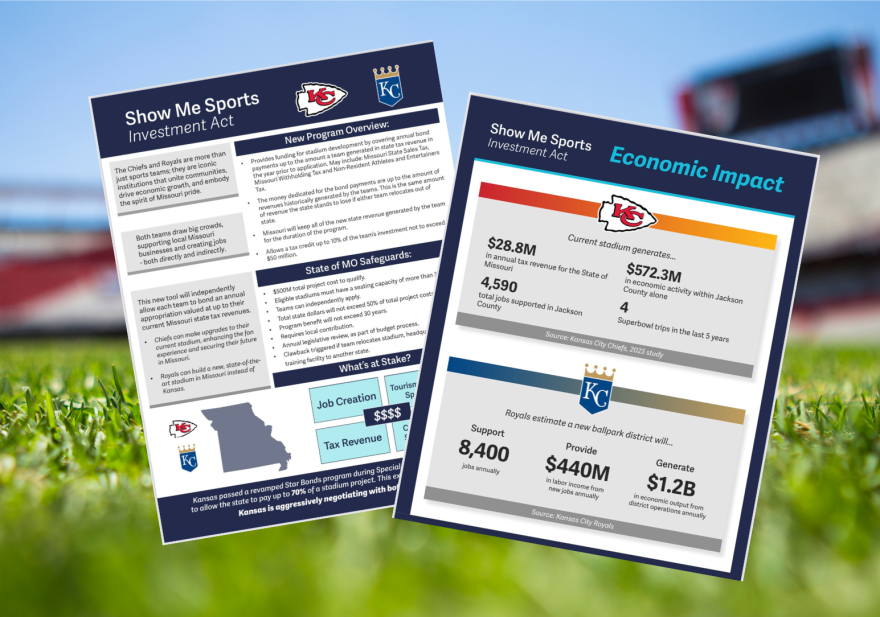Sports stadiums aren’t just venues—they’re economic catalysts that stimulate tourism, create jobs, and amplify civic pride. Missouri’s recent legislative push to support the Kansas City Chiefs and Royals vividly illustrates how proactive investment can yield business and community dividends.
Last week Missouri lawmakers passed the Show Me Sports Investment Act, authorizing the state to fund up to 50% of new or renovated stadium costs—via bonds, and offer additional tax credits of up to $50 million per stadium—contingent on local matching participation.
The rationale is compelling: the Chiefs generate nearly $29 million in annual state tax revenue, and the Royals drive more than $570 million in economic activity for Jackson County. Losing these franchises isn’t just about sports, it would hollow out a regional economic engine, threatening hospitality, retail, and real estate development tied to gameday and related events.
Critics decry public subsidies for billionaire-owned teams, but it’s strategic investment. Retaining these franchises safeguards ongoing tax streams, broadens regional branding, and enhances long-term competitiveness. Moreover, modern amenities—from luxury suites to event-ready domes—unlock ancillary revenue and community value.
Missouri’s case offers a blueprint: government can and should partner with private interests when public returns—jobs, tourism, community vibrancy—outweigh the initial outlay. The stakes are high, but as Missouri proves, smart public investment in stadium infrastructure can yield sustainable economic and social gains.


